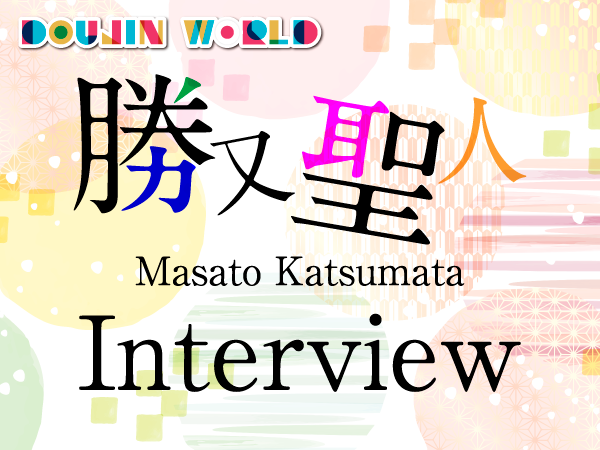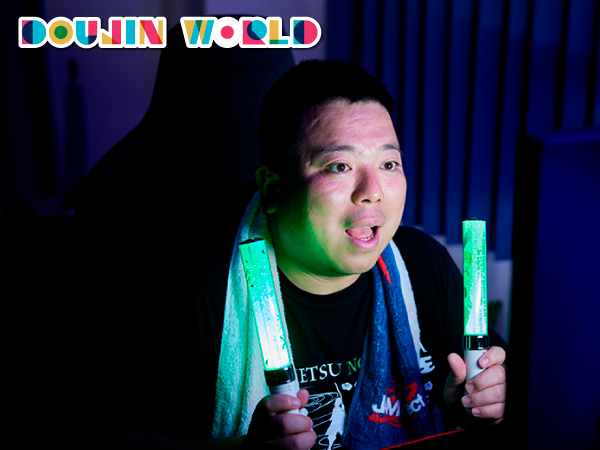2022.04.02
Protecting and Sharing Japan’s Proud Culture of Creation: Councilor Kenzo Fujisue
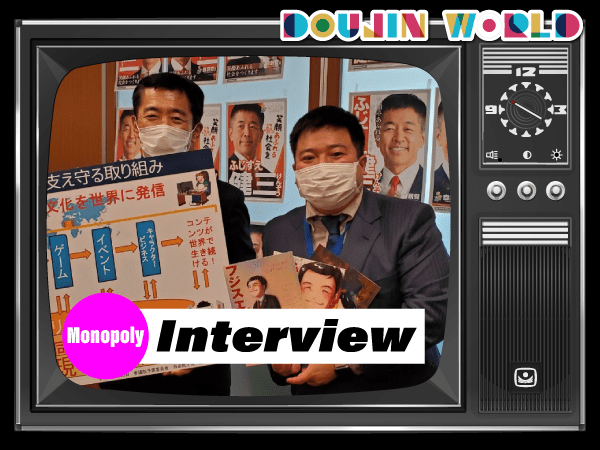
Our interviewee today has the kind of resume that will make you think they cheated to get it. We had to travel all the way to the Assembly Hall of the House of Councilors to meet them! That’s the upper house of the National Diet of Japan…We’re talking the place where high-level politicians meet! And we didn’t just hang out outside…we actually went inside!!
Our interviewee is a Kumamoto Prefecture native who, after graduating from a university in Tokyo, joined the Ministry of Economy, Trade, and Industry. After that, he obtained graduate degrees from the Massachusetts Institute of Technology and Harvard in the U.S., and even got his pro boxing license. What’s more, he also worked at Japan’s illustrious Tokyo University as an associate professor before being elected to serve in the House of Councilors. Honestly, the longer his resume becomes, the more we wonder if he isn’t just a manga character come to life!
We’re talking about Councilor Kenzo Fujisue!
Councilor Fujisue supports policies that “respect, protect, encourage, and share Japan’s proud doujin culture.” In other words, he’s a leader for all of us doujin. But we can’t help but wonder, why would such an illustrious person want to support doujin culture?
Wait…No way. Could Councilor Fujisue actually be an otaku?
How to Develop and Come in Contact with New Culture
“(laughs) I don’t know if I can say I’m an otaku or not. But I used to always read as much manga as I could get my hands on. I thought it was normal, but if you compared the amount to other people, it was probably huge. I have also distributed doujinshi at a selling fair before, and my daughter is highly involved in the community.”
Ooh…so not even just the illustrious Councillor, but his daughter is a doujinshi selling fair attendee! Maybe this isn’t something we can say about a councilor, but we’ve found a kindred soul!
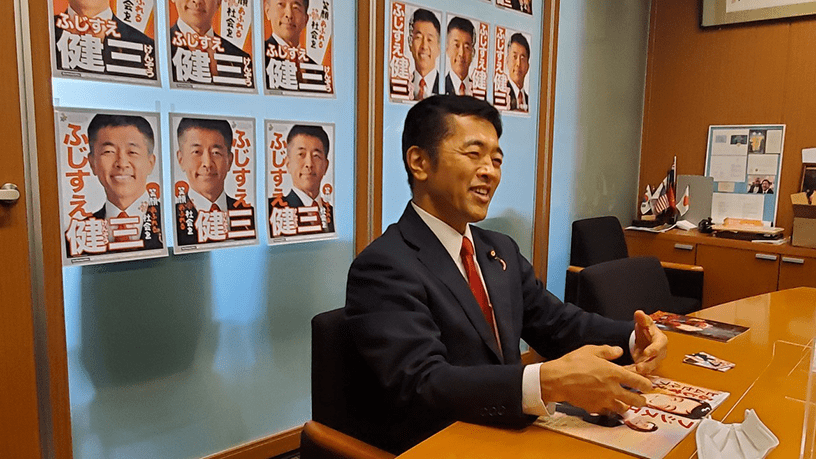
“In the past, being an otaku wasn’t really thought of as a good thing, but nowadays the impression has changed for the better, little my little. Even doujinshi selling fairs put self-expression over profits, and that makes it more fun.
“Doujin culture goes all the way back to the Meiji era. Even the famous general and author Ogai Mori (who lived through the end of the Meiji period)…In his time, novels were the main form of literature, but it’s said that he wrote doujinshi too.
“At that time, it was thought that reading novels was bad for children. Over time that changed to watching TV, then video games and the Internet. New culture is always rejected initially, and then gradually becomes accepted by society.”
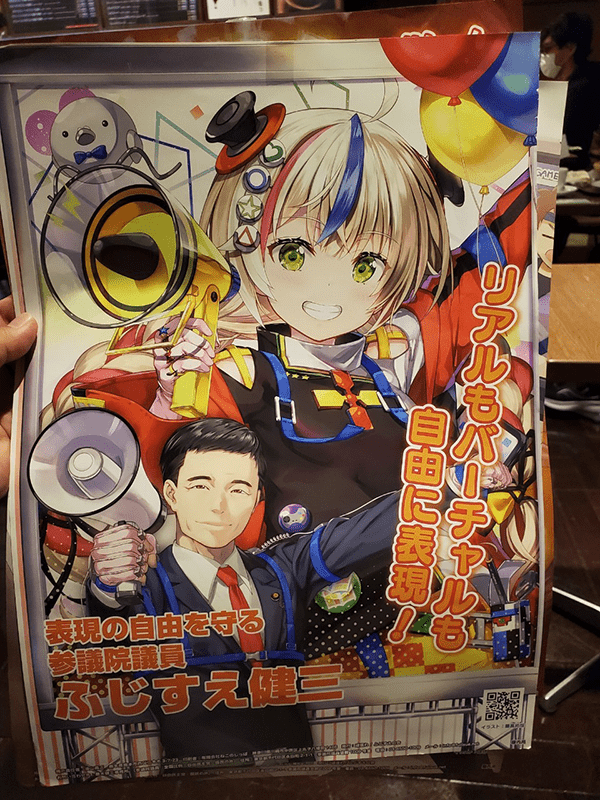
Yes, it takes time for new forms of culture to be accepted. A good example is provided by the law passed by Kagawa Prefecture in 2020 called the “Kagawa Prefecture Measures against Internet and Video Game Addiction”, which encouraged parents to restrict their children’s time with video games and on the Internet to less than 60 minutes per day. Councilor Fujisue was someone who opposed the law. Though we didn’t want to touch much on the debate that bill caused, we did have one burning question for Councilor Fujisue: how do you manage video game time for your children?
“I don’t tell my children that they can’t play video games. Rather, I believe we parents should enjoy them together with our kids. I heard that a lot of the people who supported the Kagawa bill have never really played video games and don’t know much about them. That doesn’t seem right.
“Video games are a means of escape for some children. Children who have difficult relationships with their friends and families often get obsessed. In such cases, I think it would be good for parents to play games with them in order to help understand that world. In doing so, parents can speak with their children from the same perspective, and it becomes a way for them to talk openly about their worries. A professor of psychology said the same thing. The important thing is for the game consoles to be kept in the living room! That way you can see what kind of games they’re playing, and it can become a point of communication for you.”
Interesting. This made us like Councilor Fujisue even more.
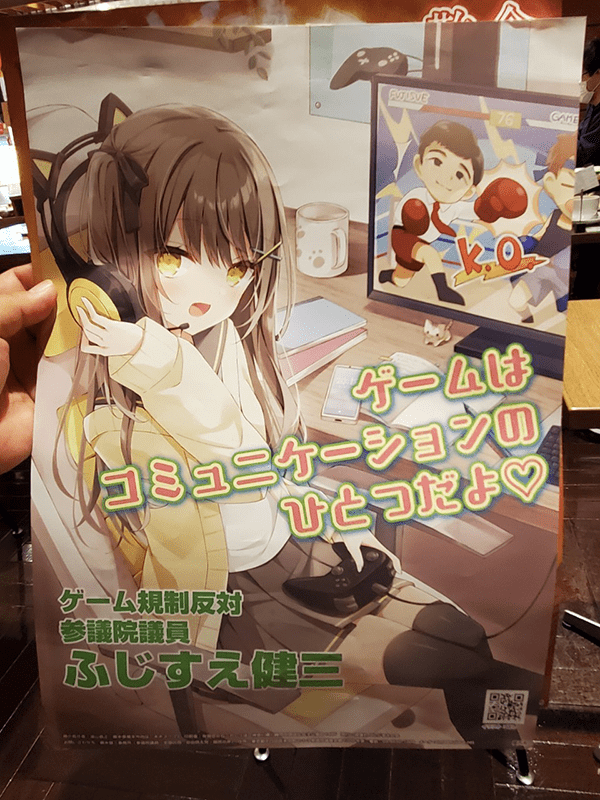
Is Doujin Culture Perverted?
Doujin culture is a proud part of Japanese culture, which is why we wish to share it with the world. But in a lot of other countries, the word “doujin” is often associated with pornography. Councilor Fujisue had plenty to say on this topic as well.
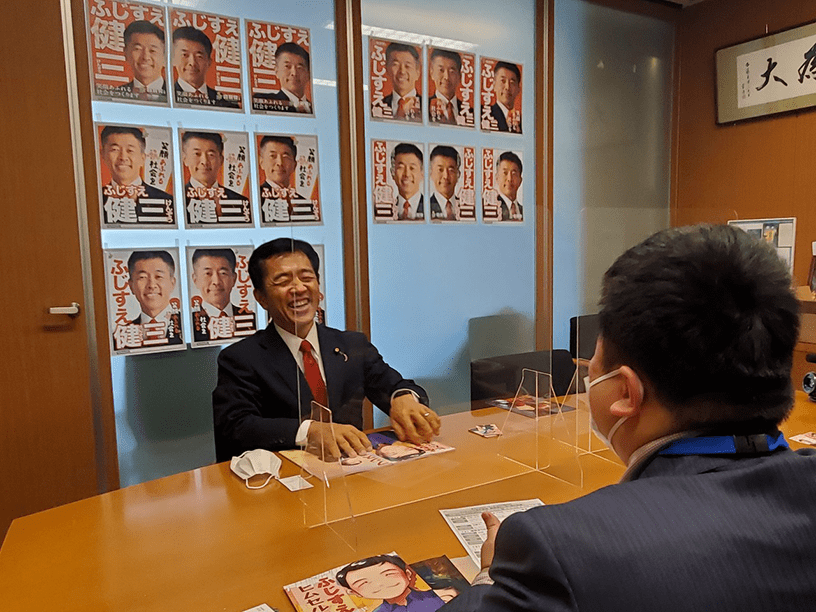
“Sex is sex, and I think that’s fine. After all, without pornography the Internet probably wouldn’t have developed as much as it did (laughs). I think it’s something we should all acknowledge. Naturally, when it comes to fan-created works, there are going to be things that come out that the original author never intended to be associated with. However, there’s nothing like this type of Japanese culture anywhere else in the world. I think both the public and underground parts are going to become more and more important in the future. The times are changing. The foundation of doujin culture is in Japan. That’s why superstar manga authors keep appearing one after the other.”
That’s true. A lot of the most popular professional manga artists started out as doujin.
Japanese Culture with a Trillion-Yen Scope
But why does Councillor Fujisue focus so much attention on doujin culture? The fact that it’s a proud part of Japanese culture is something we can agree on, but as far policy-making goes, is there really any value to it?
“How much do you think the anime and manga market makes? For example, one hit manga will then be turned into an anime, then a video game, and then they’ll make movies, and then the music and the characters become a business in themselves. All of that added together makes this industry a match for even the construction industry. What’s more, if you think internationally as well as domestically, the anime and manga industry has an economic scope of tens of trillions of yen (or tens of billions of US dollars).”
Wow…those are some astronomical numbers. How many beef bowls could we get for 10 trillion yen? (Clearly, our brains are quite different from Councillor Fujisue’s.)
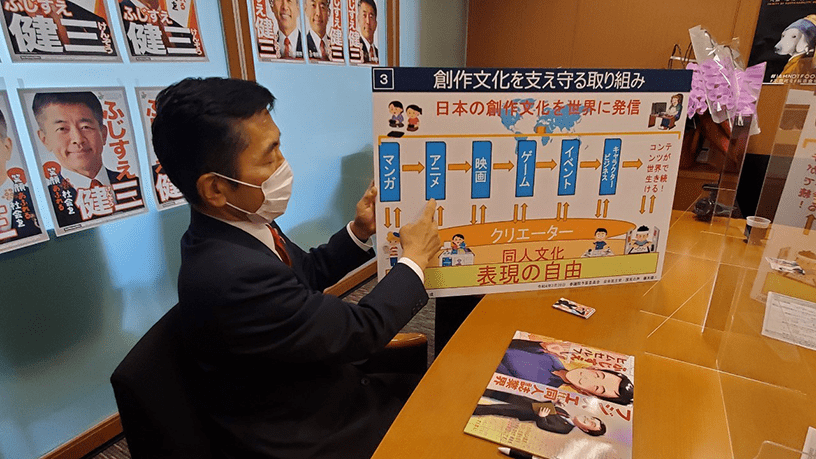
“And the ones who support that industry are the creators. Those creators grow by first interacting with doujin culture. And what is the thing that lies at the root of all that? Freedom of expression.”
Oooh…it’s all coming together! The foundation of that huge economic scope is freedom of expression, which is governed by policy. That’s why Councilor Fujisue is acting as a flagbearer for the development of doujin and creative culture.

Looking Forward to Live-action Adaptations
Lastly, since Councilor Fujisue told us he was a manga fan, there was one thing we wanted to ask him. Live-action adaptations of manga are always shrouded in debate. In one sense, you could say that live-action adaptations are just publicly accepted fan works. What does Mr. Fujisue (whose title of councilor we’ve dropped specifically for this question) think of them?
“Let’s see. First off, one live adaptation that I thought was amazing was Teiichi: Battle of Supreme High. As someone who works in the political world, I thought it was very interesting. Rurouni Kenshin was also really entertaining! But there are also some productions that I think are hellish, and some that I don’t. What I really want them to do is a live adaptation of Apocalypse Zero. I feel like if they made it in America it would be really popular. Also, this is an old one, but The Moon. Though this one may cost me my memories (laughs).”
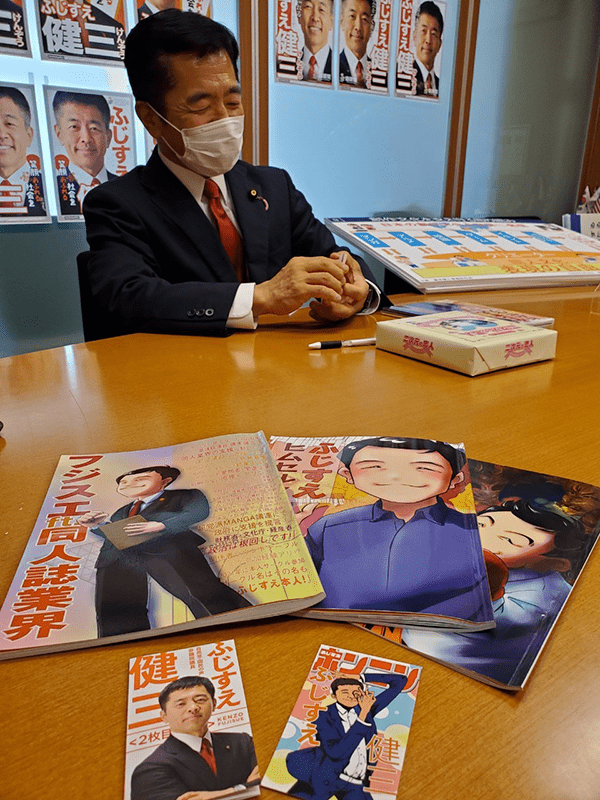
As a politician and manga fan, Councilor Fujisue continues to speak for Japan’s proud culture of creativity, as well as for freedom of expression. We at DoujinWolrd hope that it will become easier and easier to engage in creative enterprises in Japan, and perhaps it will be thanks to him!
- Kenzo Fujisue
Twitter:@fujisue
Website: https://fujisue.net

Follow @doujinworld
Writer
Shiro Sato




